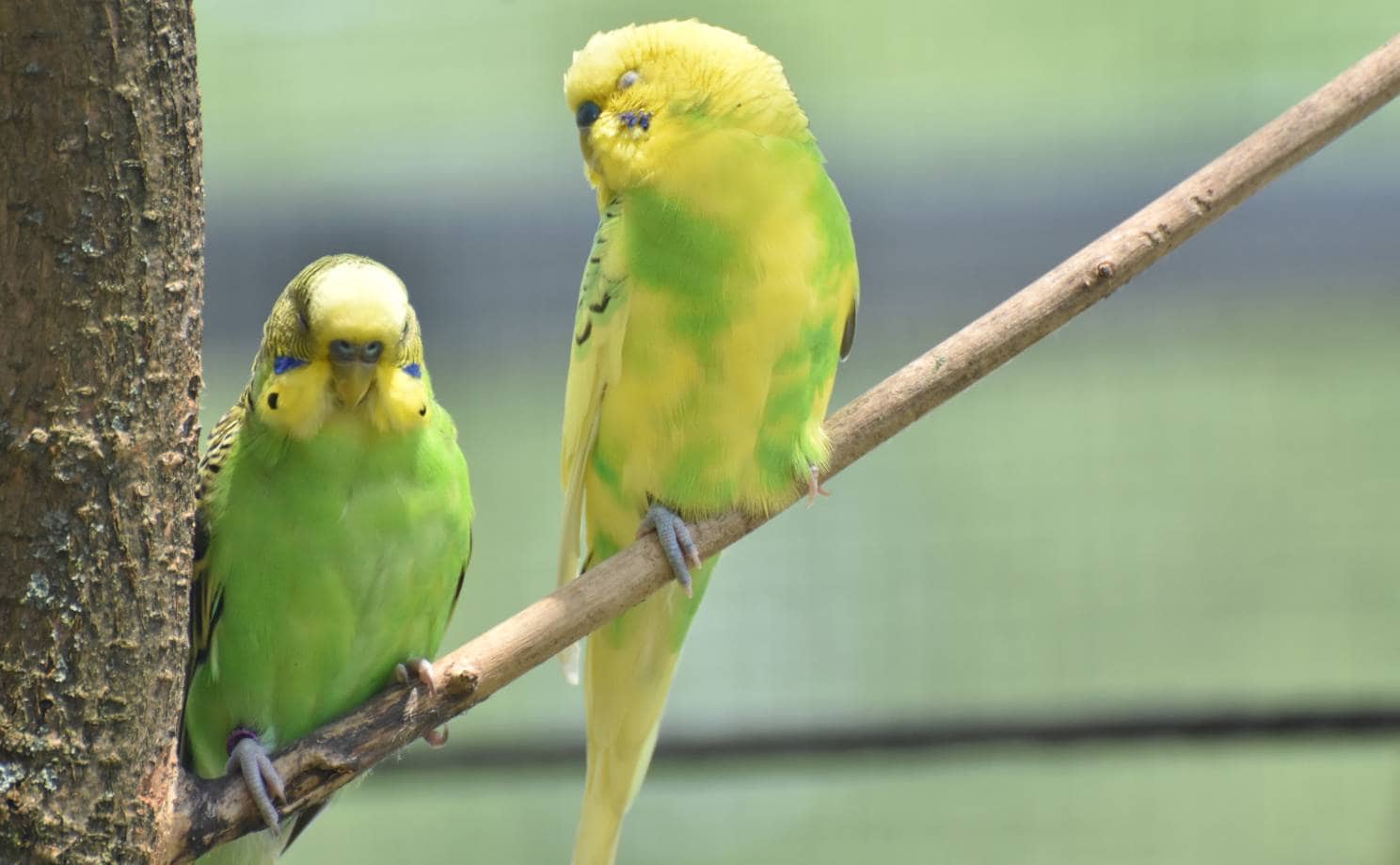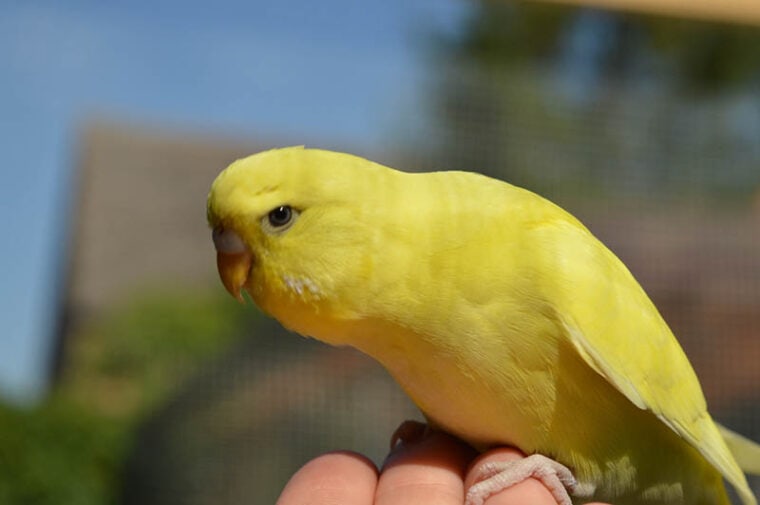
Click to Skip Ahead
Canaries are beautiful little birds that love to sing. As their name suggests, canaries originated from the Canary Islands. These birds are highly intelligent, which is one reason that they are so popular as pets. However, these birds are not merely domesticated pets. Thousands of canaries can be found living in the wild in places like La Gomera, Madeira, Puerto Rico, and Hawaii. The lifespan of a canary depends on whether they live freely in the wild or as a pet in captivity. You can expect a pet canary to live between 6-12 years. Here’s what you should know!
What’s the Average Lifespan of a Canary?
A pet canary has a life expectancy of between 6 and 12 years, but some have been known to live until their 15th year. Canaries in the wild can live just as long, but several factors, such as predators and access to food, can affect their lifespan.
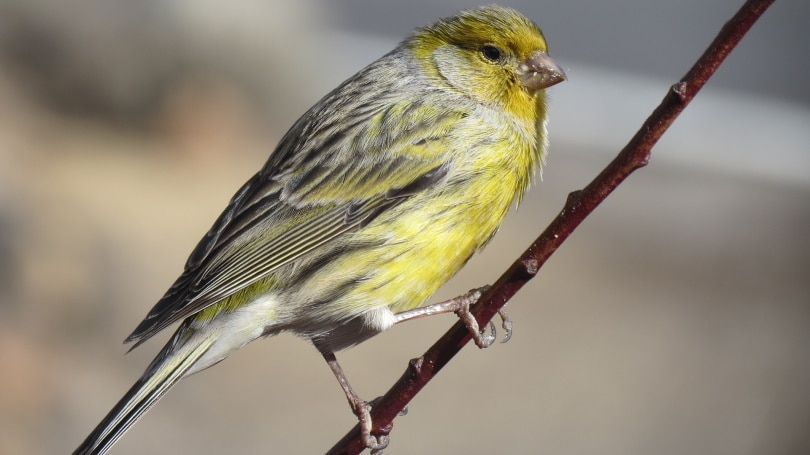
Why Do Some Canaries Live Longer Than Others?
1. Nutrition
Canaries are considered granivores, which means seeds make up most of their overall diet. An all-seed diet does not provide all the vitamins and minerals that a canary needs for a long and healthy life, however, so they also eat fruits and veggies for nutrient supplementation and meal variety. Canaries that don’t get the nutrients that they need daily may have shorter lifespans than those that do.
2. Environment and Conditions
When properly cared for, domestic canaries live in safe habitats where they don’t have to worry about predators or fighting with other canaries. Their habitats do not expose them to the illnesses, viruses, or pests found in the wild. Therefore, they may live longer than birds in the wild that have a hard time finding proper living conditions.
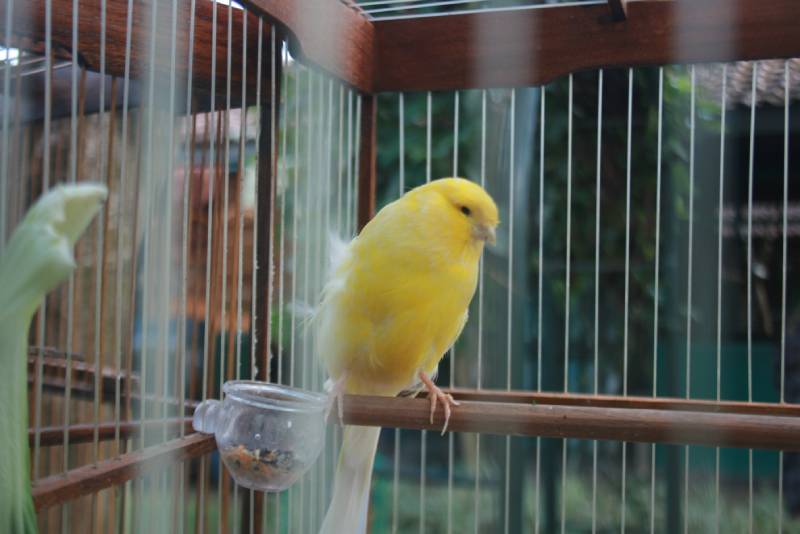
3. Enclosure Size/Living Quarters/Housing
Canaries need sufficient space to move around and explore. Their housing also requires regular cleaning. Canaries in small or dirty cages tend to have a reduced quality of life compared to those in clean cages at least 18 x 24 x18 inches in size. Debris can contaminate the cage and expose the bird living in it to parasites and viruses that can cause illness and affect overall lifespan.
4. Sex
Males tend to live longer than females, as the latter sadly lose years of their life whenever they procreate. Therefore, females that are kept for breeding may only live 4 or 5 years in total.
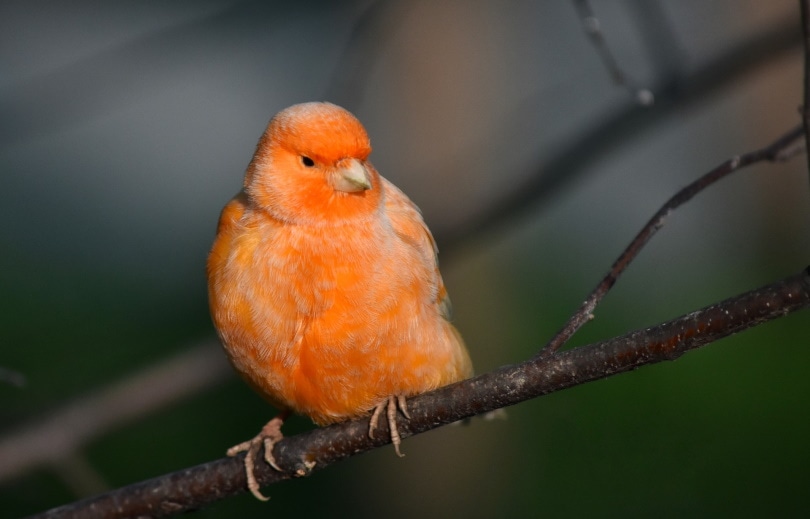
5. Genes
Genes can play a significant role in the lifespan of a canary. A bird born from parents or a lineage with a history of health problems or genetic disorders is more likely to inherit those issues themselves. A bird born with healthy genes is likely to live longer and have fewer health problems.
6. Breeding History
Breeding can affect a canary’s lifespan. If breeding birds are kept in cramped conditions and not properly cared for, they could develop health problems that are passed on to their offspring. If those problems persist or are not caught soon enough, they could result in shortening the bird’s lifespan.

7. Healthcare
Healthcare is essential for all canaries, just like for any other domesticated pet. Without regular checkups, you won’t know if a health problem is brewing and be able to address it quickly. If veterinarian services are not sought when an illness arises, it could result in premature death.
The 5 Life Stages of a Canary
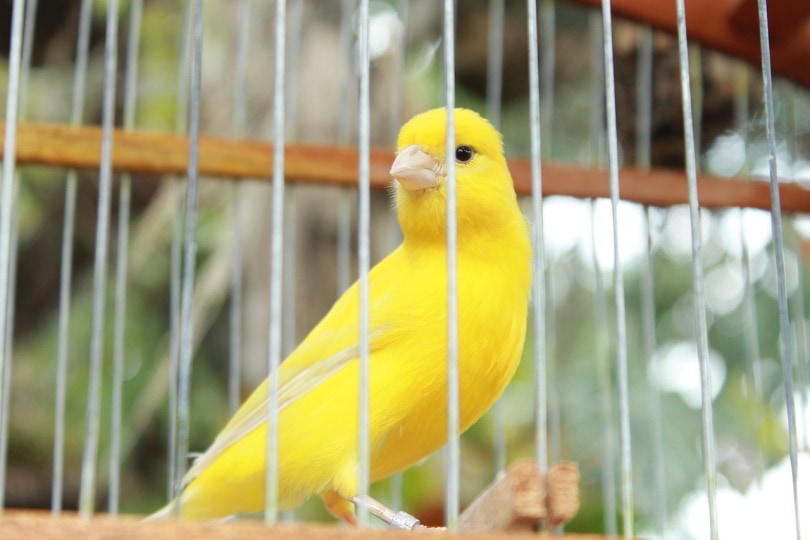
1. Embryonic Stage
Baby canaries start in eggs, where they are incubated by their mother for about 14 days. During this time, their mother rarely leaves the eggs to ensure that they are kept warm and safe so they can thrive. Eggs start to hatch around the 14-day mark.
2. Hatchlings
Hatchlings don’t do much when they first come out of their eggs. However, after the first week, their feathers start to grow in. Their bodies are full of feathers by the time that they are about 2 weeks old. If the weather permits, baby chicks start to leave the nest by about 15 days old. They begin a life of self-reliance at about 21 days old.
3. Juvenile
Chicks are considered juveniles once they are self-reliant. They typically have an initial molt at about 8 weeks of age, which is referred to as the juvenile molt. This is when they lose their body feathers (albeit not on their tails and wings) so new feathers can grow in.
4. Adult
Canaries usually reach maturity at about 8 months old, when they start to molt all over their bodies, including their wings and tails. At this time, they also learn how to sing and “babble” if they are males. Mature canaries wait until spring to reproduce so the lifecycle can start all over again.
5. Senior
It’s hard to tell when a canary is a senior unless you know their exact age. Canaries do not change much once they reach maturity. Older birds may develop illnesses or start to show signs of slowing down at the end of their life.
How to Tell Your Canary’s Age
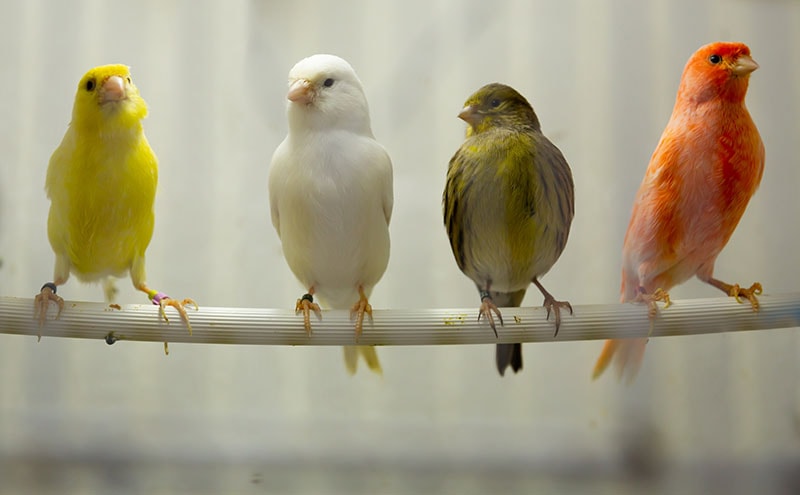
Telling the age of a canary can be virtually impossible. If the bird is a baby, age can be estimated easier than if they are a juvenile or adult. They stay young for such a short period, so an age estimate can’t be wrong by more than a week or two. Canaries live longer than similar-sized mammals, so they tend to act differently as they age.
Older canaries still act youthful and sprite, which can lead you to believe that they are much younger than they really are. The truth is that unless a breeder or previous owner can tell you, it may not be possible to ever know how old your canary is.
Conclusion
Canaries are fun to have as pets, and their intelligence makes it easy to interact with them. They can live up to 15 years, so it’s important to understand the commitment that it takes to care for one of these animals before deciding to adopt one as a pet.
Featured Image Credit: JumpStory


